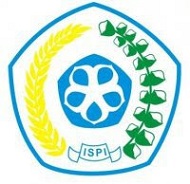PROMOTING INDONESIAN EFL STUDENTS’ CRITICAL THINKING SKILLS THROUGH REFLECTIVE LEARNING
DOI:
https://doi.org/10.26740/jp.v9n1.p1-9Keywords:
High order thinking skills, Reflection, University levelAbstract
Reflective learning is used to improve writing skills, and track the learning process regarding what students understand and what they do not understand. However, little research has explored the impact of reflective learning on students' critical thinking, especially in higher education. This study aims to fills the gap by exploring Indonesian EFL students in the seventh semester of using reflective learning in improving critical thinking skills and identifying their development of critical thinking skills through reflective learning. Questionnaires and students’ reflective learning are provided for data collection. The result reveal that from the questionnaire, reflective learning has an impact on students' critical thinking of 79.99%. Furthermore, it is also found that from students’ reflective learning participated in this study employed three development of critical thinking skills: 1) identify the strength, 2) recognize the weaknesses, and 3) find out the solution. Finding suggest that strategic use of reflective learning may enhance EFL critical thinking skills as well as maximize the achievement of their learning goals.
References
Aein, F., Hosseini, R., Naseh, L., Safdari, F., & Banaian, S. (2020). The effect of problem-solving-based interprofessional learning on critical thinking and satisfaction with learning of nursing and midwifery students. Journal of Education and Health Promotion, 9(1), 109. https://doi.org/10.4103/jehp.jehp_640_19
Barnes, C. A. (1992). Critical thinking: educational imperative. Jossey-Bass.
Braun, V., & Clarke, V. (2006). Using thematic analysis psychology. Qualitative Research in Psychology, 3(2), 77-101
Facione, N. C., & Facione, P. A. (1996). Critical thinking; A statement of expert consensus for purposes of educational assessment and instruction.
Fereday, J., & Muir-Cochrane, E. (2006). Demonstrating rigor using thematic analysis: A hybrid approach of inductive and deductive coding and theme development. International Journal of Qualitative Methods, 5(1), 80-92
Iskandar. (2009). Metodologi penelitian kualitatif (1st ed.). Gaung Persada Press.
Miles, M., & Huberman, A. (1994). Qualitative data analysis: An expanded sourcebook (2nd ed.). Sage.
Moon, J. (2004). A handbook of reflective and experiential learning: Theory and practice. Routledge Falmer.
Radnor, H. A. (2001). Researching your professional practice. Open University Press.
Silverman, D. (2001). Interpreting qualitative data: Methods for analysing talk, text and interaction (2nd ed.). SAGE Publications.
Sugiyono. (2008). Metode Penelitian Kuantitatif Kualitatif dan R&D. ALFABETA.
Downloads
Published
How to Cite
Issue
Section
License

This work is licensed under a Creative Commons Attribution-ShareAlike 4.0 International License.
 Abstract views: 572
,
Abstract views: 572
, PDF Downloads: 422
PDF Downloads: 422








.png)





